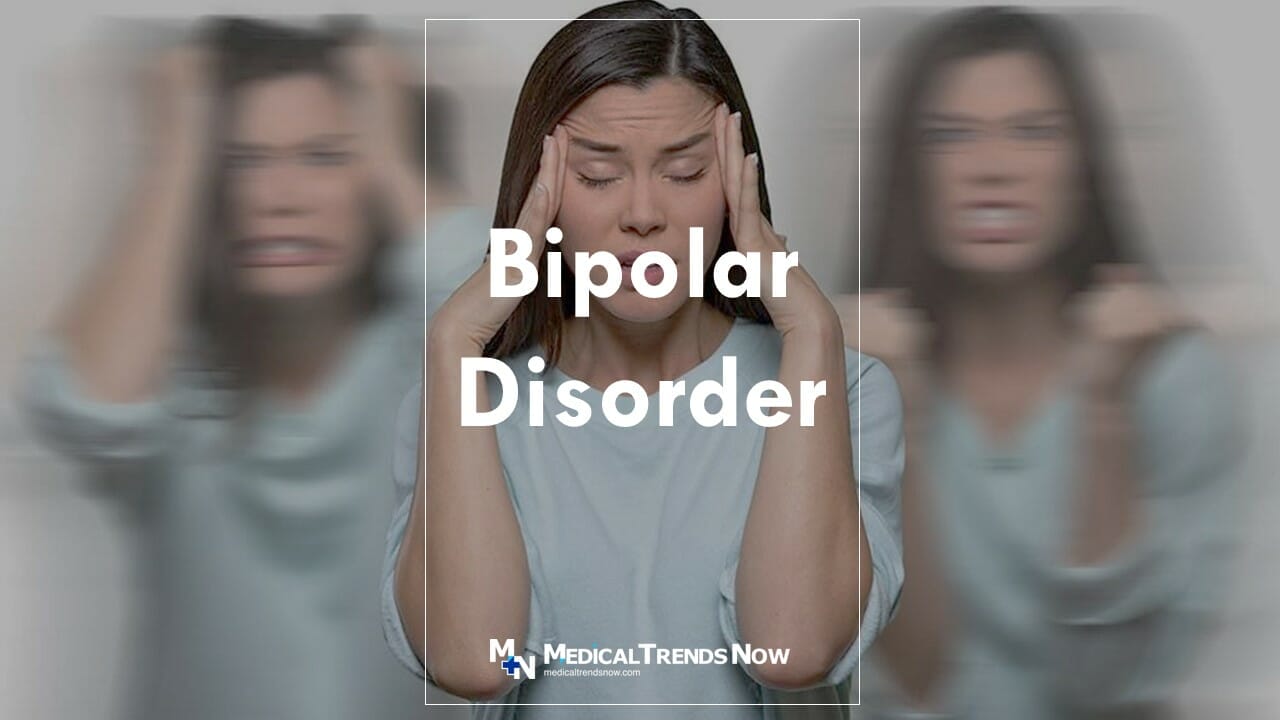Table of Contents
Bipolar disorder is a serious mental illness that can be difficult to understand. In this article, we will try to provide you with basic information about bipolar disorder and its causes so that you can make an informed decision about whether or not you want to seek treatment for this condition.
People with manic depressive illness may experience manic episodes followed by periods of depression. Bipolar disorder can be difficult to diagnose and manage, but there are treatments available that can help. If you think you or someone you know may have manic depression, it’s important to seek professional help. This article will provide an overview of manic depressive illness, its symptoms, and available treatment options.
What is Bipolar Disorder?
Bipolar disorder is a mental health condition that causes people to have episodes of mania and depression. Mania is a high mood, energy, and activity level and can include racing thoughts, being talkative, and being recklessly risk-taking. Depression is a low mood, sadness, hopelessness, and lack of interest in life.
People with manic depressive illness may also experience other symptoms, such as insomnia or difficulty concentrating. There is no one cause of manic depression, but it may be caused by genes or environment (such as trauma). Treatment typically includes medication and therapy.

What are the Types of Bipolar Disorder?
There are three types of bipolar disorder: bipolar I, bipolar II, and manic depression, not otherwise specified. Each type is characterized by different symptoms and requires different treatments.
Bipolar I is the most severe form of manic depressive illness. People with this type have episodes of mania and depression, which can be very disruptive and dangerous. They need close supervision and may need to take medication to keep their moods stable.
Bipolar II is less severe than bipolar I. People with this type have episodes of mania and depression, but their moods usually stay within a certain range for a longer period of time. They may not need medication to control their moods, but they still need close supervision.
Bipolar disorder, not otherwise specified, is the most common type of manic depression. People with this type have episodes of mania and depression, but they don’t fit neatly into any other category. They need more research to be classified accurately.
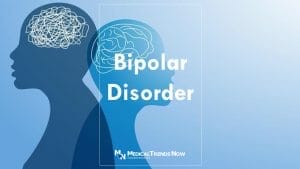
Symptoms of Bipolar Disorder
There are many symptoms of bipolar disorder, which can make it difficult for people to live their lives. Some common overall symptoms include:
- recurrent mood swings, from extreme euphoria to deep depression
- problems functioning normally because of changes in mood or energy
- feelings of irritability, restlessness, and impulsiveness
- problems with concentration and memory
- significant changes in appetite or sleep patterns
- withdrawal from friends and activities
- suicidal thoughts or actions
- fear of losing control or going crazy.

Mania and Hypomania
Though mania and hypomania are two different types of episodes, they both have the same signs and symptoms. Mania is more severe than hypomania and results in more pronounced issues with relationships, jobs, school, and social activities. Additionally, psychosis (a state of dissociation from reality) brought on by mania may necessitate hospitalization.
Three or more of the following symptoms characterize both a manic and a hypomanic episode:
- Unusual talkativeness
- Rapid-fire thinking
- Distractibility
- Making bad choices, such as going on shopping binges, taking sexual risks, or making stupid investments
- Abnormally happy, jittery, or wired
- Increased energy, vigor, or agitation
- An exaggerated sense of well-being and confidence (euphoria)
- Reduced need for sleep

Major Depressive Episode
When a major depressive episode occurs, the symptoms are severe enough to significantly interfere with daily activities, including job, school, social interactions, or romantic relationships. Five or more of the following symptoms constitute an episode:
- Feelings of worthlessness or excessive or inappropriate guilt
- Decreased capacity for thought or concentration, or indecision
- Suicidal ideation, planning, or attempt
- The depressed state of mind, including sadness, emptiness, hopelessness, or tears (in children and teens, a depressed mood can appear as irritability)
- Marked loss of interest in or enjoyment from all — or nearly all — activities
- Significant weight loss without dieting, weight gain, or a change in appetite (in children, failure to gain weight as expected can be a sign of depression)
- Having trouble sleeping or sleeping excessively
- Either agitation or sluggish behavior
- Fatigue or a decline in energy
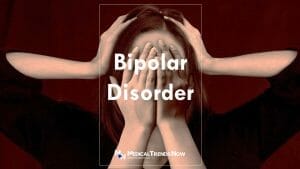
Causes of Bipolar Disorder
There is no one known cause of the bipolar disorder, which is a chronic mental illness characterized by extreme mood swings. However, some risk factors for developing manic depression include genetics, early-life trauma or stress, and a history of substance abuse.
When someone has bipolar disorder, their mood can swing from extremely high (manic) to very low (depressive) within minutes or even hours. The person may also have problems with concentration, motivation, and energy. Bipolar disorder can dramatically impact a person’s ability to carry out daily tasks and relationships can be affected as well.

Risk Factors for Bipolar Disorders
There are many risk factors for developing bipolar disorder, but not everyone who experiences bipolar symptoms will develop the condition. Some people are more likely to develop manic depression if they have a family history of the condition, experience chronic stress, or have a personal history of mental illness. In addition, people who abuse drugs or alcohol are at increased risk for developing bipolar disorder.
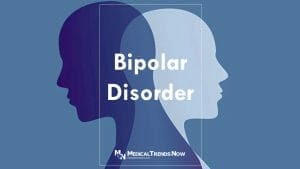
Diagnosing Bipolar Disorder
The diagnosis of bipolar disorder will vary depending on the individual’s symptoms and history. However, there are some common indicators that may suggest a person may have manic depression, including persistent mood swings that range from extremely high (mania) to extremely low (depression), significant changes in behavior or energy levels, and recurrent thoughts about suicide or death.
If you are concerned that a loved one may have bipolar disorder, it is important to seek out professional help.

Treatments for Bipolar Disorder
There are many different treatments that can be used for bipolar disorder. Some of the most common treatments include medication, psychotherapy, and electroconvulsive therapy (ECT). Medications used to treat manic depression can range from mood stabilizers to antipsychotic medications.
Following are other treatments for Bipolar Disorder:
- Lithium therapy – Lithium is a medication that is used to treat bipolar disorder. Lithium works by stabilizing the mood swings that are characteristic of the condition.
- Anticonvulsants – Anticonvulsants are also often used to treat manic depression. These medications help to reduce the number of seizures a person has, which can, in turn, reduce symptoms of mania and depression.
- Cognitive-behavioral therapy – CBT is a treatment that helps people manage their thoughts and behaviors around bipolar disorder. This type of therapy focuses on correcting faulty thinking patterns and reducing destructive behavior.
- Medications for sleep – Many people with manic depression also experience difficulty sleeping. Medications that help to improve sleep can be very effective in reducing symptoms of bipolar disorder.
- Hospitalization – If a person with manic depression is unable to manage their symptoms on their own, they may be hospitalized. Inpatient treatment may include medication and therapy, as well as counseling and support groups.
- Psychotherapy – Psychotherapy is a type of treatment that helps people understand and manage their emotions. This type of therapy can be very effective in treating bipolar disorder.
- Medication management – Proper medication management is the key to long-term success for people with manic depression. It’s important to stick to a prescribed regimen of medications and to take them as prescribed. If a person experiences side effects from their medications, they should speak with their doctor about possible adjustments.
- Support groups – There are many support groups available to people with bipolar disorder. These groups can be valuable resources for people on the path to recovery.
- Nutritional supplements – Many people with manic depression find that nutritional supplements help to improve their symptoms. It’s important to speak with your doctor before starting any supplements, as there may be contraindications.
- Coping mechanisms – People with bipolar disorder often use different coping mechanisms to deal with their symptoms. These mechanisms can include exercise, dieting, and meditation.
- Family support – Families of people with manic depression can be a tremendous resource for support and guidance. Parents can provide valuable insight into their child’s condition and help to provide encouragement and support during recovery.
- Electroconvulsive therapy (ECT) – ECT is a very effective treatment for people with manic-depressive illness. ECT is often used in combination with other therapies, such as medication and therapy.
- Targeted therapy – Targeted therapy is a type of therapy that is specifically designed to treat the symptoms of manic depression. This type of therapy may include medications, electroconvulsive therapy, or cognitive behavioral therapy.
- Transcranial magnetic stimulation – Transcranial magnetic stimulation (TMS) is a type of therapy that uses magnetic fields to stimulate specific areas of the brain. TMS has been shown to be effective in treating symptoms of bipolar disorder, including depression and anxiety.
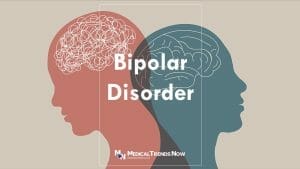
Prevention of Bipolar Disorder
There is no one-size-fits-all answer to preventing bipolar disorder, as the best prevention strategy depends on the individual person’s unique history and symptoms. However, some general tips that may help protect against manic depressive illness include:
Keep your mood swings under control.
This means avoiding extreme highs and lows and making sure you have a consistent daily routine that keeps you stabilized. If your mood swings are causing major problems in your personal or professional life, see a mental health professional for help.
Stay connected to family and friends.
People with bipolar disorder often need support from family and friends to maintain stability in their lives. Make sure you tell them about your mood swings so they can be supportive and understanding.
Avoid substance abuse.
Substance abuse can trigger or worsen mood swings in people with bipolar disorder, so it’s important to avoid using substances that could cause problems. If you do use substances occasionally, make sure they don’t cause significant changes in your mood or behavior.
Get regular exercise.
Exercise has been shown to help improve mood and cognitive function in a wide variety of conditions, including manic-depressive illness. Exercise can also help you feel more stable and connected to your own body.
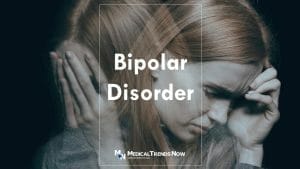
Tips for Understanding People With Bipolar Disorder
- Learn as much as you can about manic depression.
- Don’t hesitate to ask questions. People with bipolar disorder are often very open about their experiences, and they may be willing to share information that can help you better understand them.
- Be patient. It can take time for people with manic depression to adjust to new situations and learn new coping strategies. Be patient and allow them time to get used to the changes.
- Respect their privacy. People with manic depressive illness may prefer not to discuss their experiences openly, and they may not want you to intrude into their personal life. Respect their wishes, and don’t try to force them to share information unless they are comfortable doing so.
- Act in a supportive manner. People with manic depression often feel overwhelmed and unsupported, which can make them feel even more overwhelmed and stressed. Act in a supportive manner and offer your help whenever possible.
- Avoid judgment. People with bipolar disorder experience a wide range of emotions, and they may not always act or feel in accordance with what you expect. Don’t judge them too harshly, and don’t try to impose your own set of rules or standards onto their life.
- Remember that people with the manic-depressive illness are still human. Despite their challenges, people with manic depression are still just like you and me – they have feelings, thoughts, and emotions just like everyone else.
- Take care of yourself! It can be difficult to cope with bipolar disorder on your own, and you may find that you need help from friends or family members to manage the condition effectively. If you feel overwhelmed or depressed, please reach out for help – there is support out there for people coping with manic depression.
Which Doctor Can Treat Bipolar Disorders
There are many different types of doctors who can treat bipolar disorder.
A psychiatrist is a medical doctor who specializes in diagnosing and treating mental illnesses.
A psychologist is a mental health professional who has specialized training in diagnosing and treating mental disorders.
A therapist is a person who provides counseling or therapy to help people with their mental health.
Your primary care doctor can also help to treat manic depression with the latest tools. They can provide you with medication to help stabilize your moods and refer you to a specialist if necessary.
If you are experiencing any symptoms of bipolar disorder, it is important to see a doctor so they can properly diagnose and treat you.
Conclusion
It is important to understand the bipolar disorder in order to best support those who suffer from it. This article has provided an overview of the condition, its symptoms, and its treatments. If you or someone you know is struggling with manic depression, please reach out for help. There are many resources available to support you on your journey.
We hope that this article has provided you with a better understanding of the bipolar disorder and its causes. If you are suffering from this condition, please remember that there is help available, and please don’t hesitate to reach out for support at your nearest clinic.
Resources
- Bipolar disorder – Diagnosis and treatment – Mayo Clinic
- Who can help with bipolar disorder? | Your Health in Mind
- The Role of Primary Care Clinicians in Diagnosing and Treating Bipolar Disorder – NCBI
- Bipolar Disorder Treatment From a Psychiatrist – Evolve Psychiatry
- What Are Bipolar Disorders? – Psychiatry.org
- Overview – Bipolar disorder – NHS
- Bipolar Disorder (for Teens) – Nemours KidsHealth
- Mental Health Disorders – MSD Manuals
- Manic-depressive illness. – American Psychological Association PsycNet
- Bipolar I Disorder | Johns Hopkins Psychiatry Guide
- Understanding Manic-depressive Illness – JAMA Network
- Bipolar Disorder in Teens – Stanford Children’s Health
- What Is Manic Depression? – Verywell Mind
Disclaimer
This website is intended to educate both members of the general public and those working in the medical field on the prevalence, causes, and methods for preventing, diagnosing and treating diseases that affect people throughout their lives. This website’s content is provided solely for informational reasons and is not meant to serve as a substitute for the advice of a qualified medical practitioner.

